
Strategic leadership of the College lies in the hands of the Scientific Board. The Managing Office ensures the coordination and management of all administrative and organisational processes, and offers different support services for Senior Fellows.
The Scientific Board constitutes the governing committee of the College. Its voting members are the Director as well as three professorial representatives from the UA Ruhr member universities who also act as spokespersons at their institutions. In an advisory role, the Board also includes elected representatives from among the research professors, research group leaders, and scientific staff, as well as the Managing Director. The Scientific Board defines the guidelines for academic activities of the College and selects international Senior Fellows.
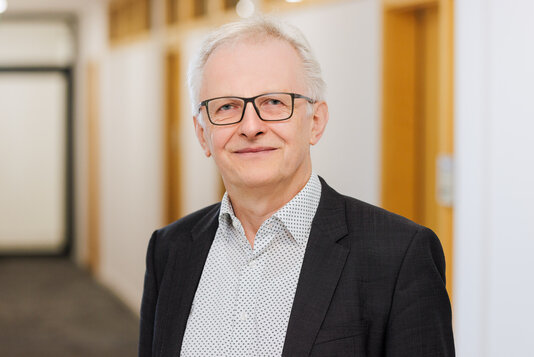
Prof. Friedrich Balke
Ruhr University Bochum | Media Studies
Phone: +49 234 32 - 27414
E-mail: friedrich.balke@rub.de
Friedrich Balke is professor of media studies at Ruhr University Bochum, with a special focus on the theory, history, and aesthetics of visual representation. Previously, he was a professor of the history and theory of artificial worlds at Bauhaus University Weimar (2007–2012). He acted as co-director of the research group Media and Mimesis (2014–2020) and he has been spokesperson of the graduate programme “Documentary Practices: Excess and Privation” since 2016, both funded by the German Research Foundation (DFG). As of 2022, he is principal investigator at the collaborative research centre (SFB) Virtual Lifeworlds at Ruhr University Bochum. His teaching and research focus on the cultural history of political sovereignty and modern biopolitics, interrelations of media and literature, history and theory of mimetic practices, and elemental media.
Friedrich Balke has held various visiting professorships, including at the Department of Germanic Languages and Literatures at Columbia University, the Center for Advanced Study BildEvidenz at Freie Universität Berlin, and the Department of German at Northwestern University. He was a senior fellow at IKKM in Weimar (2011/12) and at the excellence cluster TOPOI, Humboldt University (2012).
Website
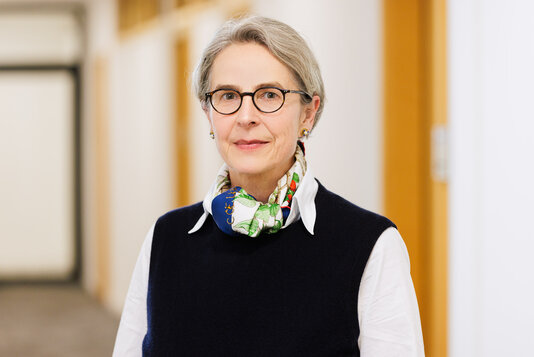
Prof. Julika Griem
Institute for Advanced Study in the Humanities (KWI) Essen | English Literature || Founding Director
E-mail: julika.griem@kwi-nrw.de
Julika Griem is the appointed Founding Director of the College for Social Sciences and Humanities as of June 2023, and the Director of the Institute for Advanced Study in the Humanities (KWI) Essen. As a professor of English Literature, her major research interests are literary and narrative theory, literary sociology, and the analysis of contemporary literature and the literary industry – including its institutions, rituals, and business models as well as its changing genres and methodologies of research. Julika Griem is also engaged in the emerging field of cultural science studies and the cultural study of science communication. Here, her research is focussed on the uses of storytelling, on non-fiction genres and markets, and on the institutionalisation and organisation of science and scholarship. Previously, she held positions as full professor of English literature at Goethe University Frankfurt and Darmstadt University of Technology. She completed her doctorate at the University of Freiburg and her habilitation at the University of Stuttgart. From 2016 to 2023, she acted as Vice President of the German Research Foundation (DFG).
Website
https://www.kulturwissenschaften.de/en/person/prof-dr-julika-griem
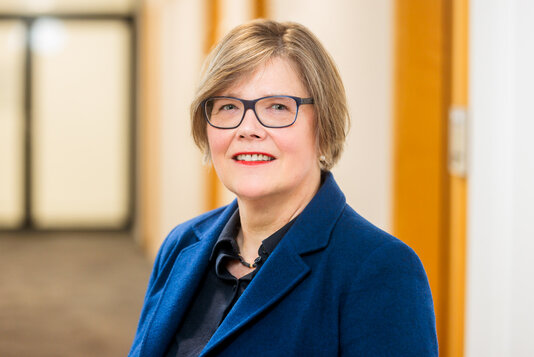
Prof. Ute Schneider
University of Duisburg-Essen | Social and Economic History
Phone: +49 201 183 - 4597
E-mail: ute.schneider@uni-due.de
Ute Schneider is professor of social and economic history at the University of Duisburg-Essen as of 2007. Since May 2020, she has acted as spokesperson of the Review Board for History of the German Research Foundation (DFG). From 2014 until 2020, she was member of the Board of Directors of the Institute for Advanced Study in the Humanities (KWI) Essen, and she conducted research as a fellow at the Historisches Kolleg in Munich in the academic year 2019/2020. Previously, Ute Schneider worked as a university lecturer in Darmstadt and held several deputy professorships in Saarbrücken, Braunschweig, Vechta, and Cologne. She completed her habilitation at TU Darmstadt University in 2002 on aspects of family law in the former German Democratic Republic. Ute Schneider’s main research areas are the social, gender, legal, and cultural history of Europe in the 19th and 20th centuries, the history of science, dimensions of modernity and its processes, cultures of compromise, and methodology in historical science.
Website
https://www.uni-due.de/geschichte/abteilung_sozial_wirtschaft_geschichte.php
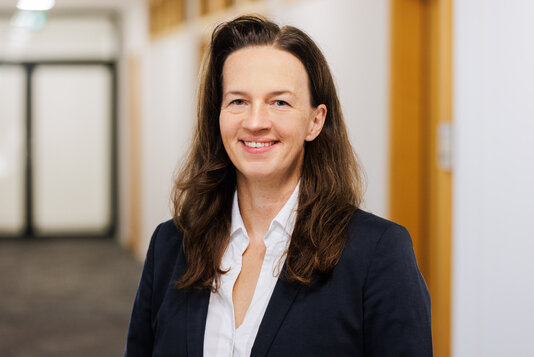
Prof. Maximiliane Wilkesmann
TU Dortmund University | Work and Organisational Sociology
Phone: +49 231 755 - 7882
In April 2020, Maximiliane Wilkesmann was appointed to the Heisenberg Professorship for Work and Organisational Sociology at the newly founded Department of Social Sciences at TU Dortmund University. Previously, she was associate professor at the Institute of Sociology of the former Department of Education, Psychology, and Sociology, where she represented the Chair of Social Structure and Sociology of Aging Societies for two semesters. From November 2010 to October 2018, Wilkesmann held the Chair of Economic and Industrial Sociology as junior professor of sociology in the Department of Economics. She received her PhD in 2009 with a dissertation on knowledge transfer in hospitals. Wilkesmann's research focuses on work, organisation, (non-)knowledge, and digitalisation. For her publications, she has received the Emerald Literati Award and the René König Textbook Prize of the German Sociological Association.
Website
https://ao.sowi.tu-dortmund.de/en/professorship/team/prof-dr-maximiliane-wilkesmann
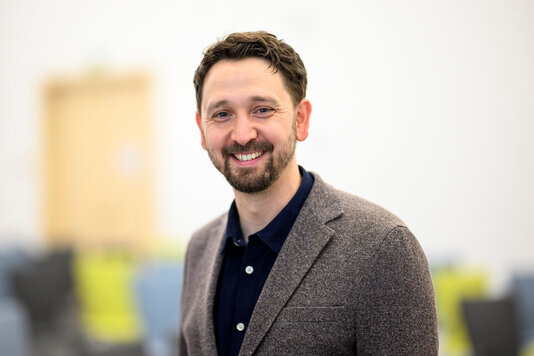 ©
© UDE / A. Wälischmiller
©
© UDE / A. Wälischmiller
Prof. Florian Fastenrath
Junior Professor | Research Group 'Political Economy of Inequality'
Phone: +49 201 183 65 62
Florian Fastenrath is Junior Professor of Comparative Political Economy, with a research focus on inequality. His work sits at the crossroads of public policy analysis, comparative and international political economy, and political sociology. He is particularly interested in how socio-economic and political inequalities intersect, especially in the context of political representation.
His research explores both sides of the representation process: how citizens form policy priorities and preferences, and how political elites perceive and respond to public demands through policymaking. He is committed to methodological innovation, blending qualitative approaches such as elite interviews, focus groups, and deliberative polling to better understand public opinion and political responsiveness.
His broader research interests include the politics of inequality and redistribution, public finance, and financialisation. His work has been published in journals such as Comparative Political Studies, Journal of European Public Policy, and Review of International Political Economy.
Before taking on his current role, Florian Fastenrath held postdoctoral positions at the universities of Bonn (2023–25) and Duisburg-Essen (2020–23), and research positions at the University of Cologne, where he completed his PhD in 2019. He also served as Substitute Professor for Policy Analysis and Political Economy at RPTU Kaiserslautern-Landau (2024–25).
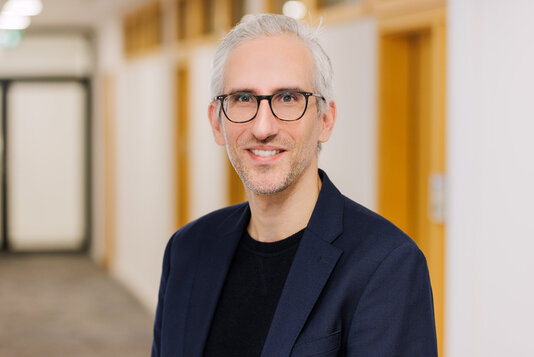
Mark Halawa-Sarholz joined the College for Social Sciences and Humanities as Managing Director in June 2022. After studying communication studies and social sciences and completing a PhD in philosophy, he held various positions both as a researcher and as an academic coordinator at the Freie Universität Berlin, Humboldt-Universität zu Berlin, and Berlin-Brandenburg Academy of Sciences and Humanities. In his scholarly work, Mark Halawa-Sarholz mainly focussed on the philosophical foundations of iconology (Bildwissenschaft), the ethical implications of visual practices, and the interplay of (Peircean) semiotics and phenomenology in current debates on aesthetics. As an academic coordinator, he was actively involved in managing research projects funded by the German Research Foundation, Federal Ministry of Education and Research, and Fritz Thyssen Foundation. Before joining the College, he served as academic executive assistant of the Vice-Rector for Research and Early-Career Researchers at the University of Duisburg-Essen.
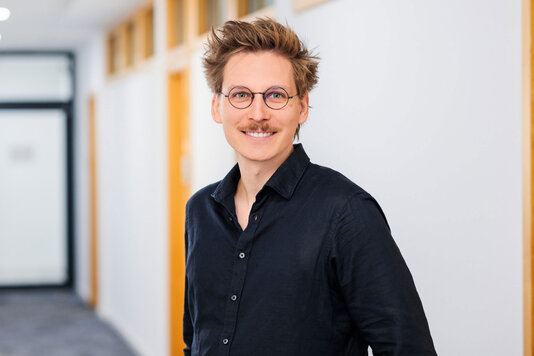 ©
© eventfotograf.in
©
© eventfotograf.in
Christopher Kirschner
Doctoral Researcher | Research Group 'Sweat - Sociology of Transpiration in the Age of Global Warming'
Phone: +49 201 183 65 64
Christopher Kirschner is a doctoral researcher in the research group 'Sweat - Sociology of Transpiration in the Age of Global Warming' as of May 2025. He studied sociology at the University of Hamburg from 2016 to 2024. In his Master's thesis, he conducted an (auto-)ethnographic study on practical mediation and incorporation processes as well as the development of a practical sense of the game in Rugby Union. His current research focuses on the ethnographic study of physical and practical senses and the social conditions of heat and sweat perception in sport and wellness cultures.
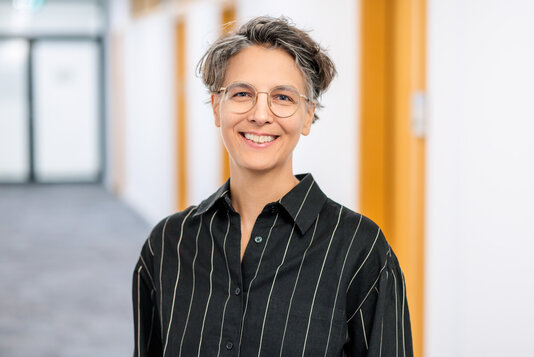 ©
© eventfotograf.in
©
© eventfotograf.in
Prof. Tahani Nadim
Research Professor 'Curating Digital Objects of Cultural Knowledge and Memory'
Phone: +49 201 183 - 6560
E-mail: tahani.nadim@college-uaruhr.de
Tahani Nadim holds the research professorship ‘Curating Digital Objects of Cultural Knowledge and Memory’ at Ruhr University Bochum and the College for Social Sciences and Humanities. She has previously held a junior professorship in social and cultural anthropology at Humboldt-Universität zu Berlin in a joint appointment with the Museum für Naturkunde Berlin (MfN). At the MfN she co-lead the 'Centre for the Humanities of Nature', which she co-founded in 2018. She was spokesperson and coordinator (together with Meike Hopp, TU Berlin) of the joint research project ‘Museums and society: mapping the social’ (2020–2024). She has worked as a programme manager at the Women’s Art Library in London, an editor at Black Dog Publishing and a researcher in Goldsmiths Library (Open Access, data models and institutional repositories). She also curated exhibitions, collaborated with artists and runs the experimental research unit ‘Bureau for Troubles’.
Tahani Nadim holds a PhD in sociology of science from Goldsmiths, University of London, UK. Her interdisciplinary research has focused on the politics of data, digitisation and collections, specifically in the context of natural history and biodiversity sciences. Her recent work engages with questions of conservation and preservation, silences in/of memory cultures and the role of archives in human-environment relations.
The Managing Office ensures the coordination and management of all administrative and organisational processes, and offers different support services. Responsibilities include fellow management, event coordination, and communication. The Managing Office is headed by the Academic Managing Director and serves as the primary port of call for College members and Senior Fellows.

Mark Halawa-Sarholz joined the College for Social Sciences and Humanities as Managing Director in June 2022. After studying communication studies and social sciences and completing a PhD in philosophy, he held various positions both as a researcher and as an academic coordinator at Freie Universität Berlin, Humboldt-Universität zu Berlin, and Berlin-Brandenburg Academy of Sciences and Humanities. In his scholarly work, Mark Halawa-Sarholz mainly focussed on the philosophical foundations of iconology (Bildwissenschaft), the ethical implications of visual practices, and the interplay of (Peircean) semiotics and phenomenology in current debates on aesthetics. As an academic coordinator, he was actively involved in managing research projects funded by the German Research Foundation, Federal Ministry of Education and Research, and Fritz Thyssen Foundation. Before joining the College, he served as academic executive assistant of the Vice-Rector for Research and Early-Career Researchers at the University of Duisburg-Essen.
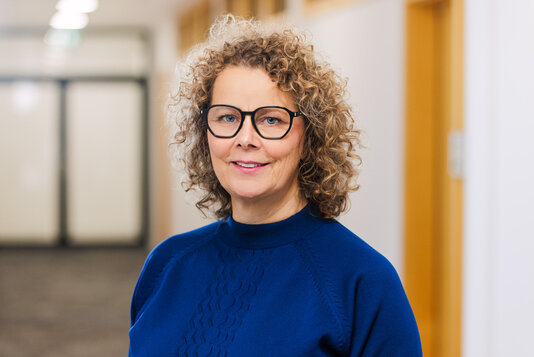
Susanne Kups
Assistant to the Managing Director & Administration
Phone: +49 201 183 - 6540
E-mail: susanne.kups@college-uaruhr.de
Since June 2023, Susanne Kups has been working at the College as assistant to the Managing Director. She is also responsible for administrative matters including finances, and she is the primary contact person regarding procurement, human resources, and organisation. Before joining the College, Susanne Kups worked in different administrative positions at the University of Duisburg-Essen, at the Centre for Start-ups and Innopreneurship (GUIDE) as well as the Department of Biology Didactics. She received a diploma in environmental sciences from the University of Duisburg-Essen after completing an apprenticeship in industrial business management.
Office Days: Tue, Wed, Thu
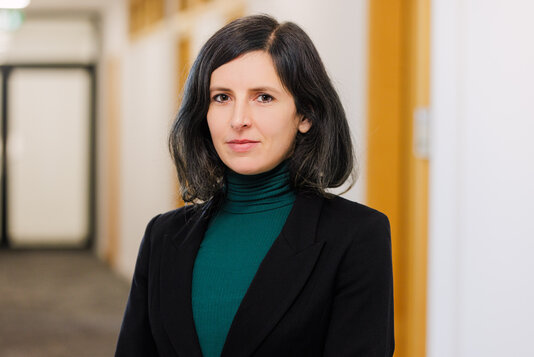
Melina Wachtling
Communications Officer
Phone: +49 201 183 - 6542
E-mail: communications@college-uaruhr.de
Melina Wachtling joined the Managing Office as Communications Officer in June 2023. She is responsible for managing communication matters at the College, both internal and external. This includes editorial management of the website and newsletter as well as public relations. She is also the primary contact person regarding science communication. Previously, she worked at a non-profit organisation in the educational sector and held positions at different universities in the field of internationalisation. Melina Wachtling studied media and cultural studies (MA) at Heinrich Heine University Düsseldorf and TU Dortmund University.
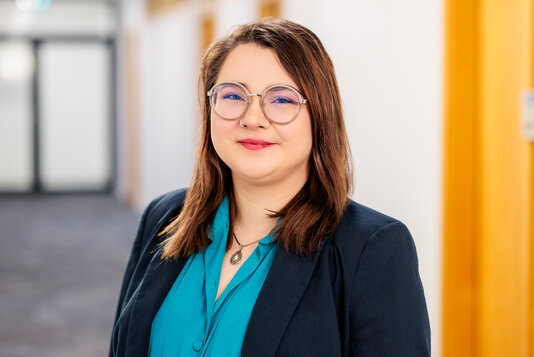
Laura Ziewitz joined the Managing Office as Event Coordinator in April 2024. She supports Senior Fellows and College members in planning and organising various academic events. Moreover, she serves as the primary contact person for enquiries of UA Ruhr members about hosting events at the College venue. Previously, Laura Ziewitz worked as a project manager for events at Ruhr University Bochum. She completed a dual study programme in Business Administration (BA) specialising in trade fair, congress and event management at the Baden-Wuerttemberg Cooperative State University (DHBW).
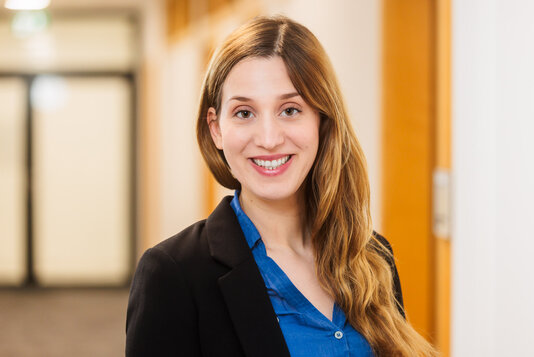
Sophia-Helena Zwaka
Fellow Management
Phone: +49 201 183 - 6543
E-mail: sophia.zwaka@college-uaruhr.de
Sophia-Helena Zwaka joined the Managing Office as Fellow Manager in December 2023. She is responsible for the Senior Fellowship Programme and she is the primary contact person for the College’s international Senior Fellows in all matters related to their fellowships. Previously, she was employed at the Max Planck Institute for Sustainable Materials in Düsseldorf where she was responsible for the International Office and coordinated the institute’s fellowship programme. Sophia-Helena Zwaka holds a Master’s degree in Near and Middle Eastern Studies from the School of Oriental and African Studies (SOAS University of London).
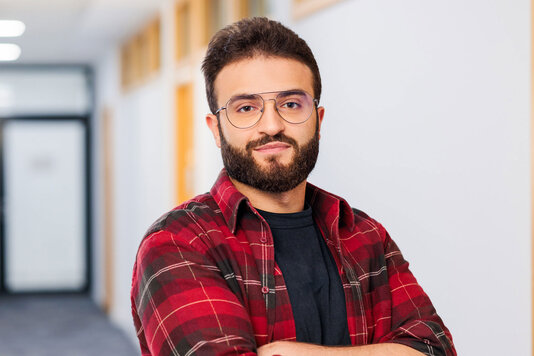
Omar Altarifi is responsible for IT support at the College as of September 2024. He supports College members in IT-related matters and coordinates the initial systems setup and configuration.
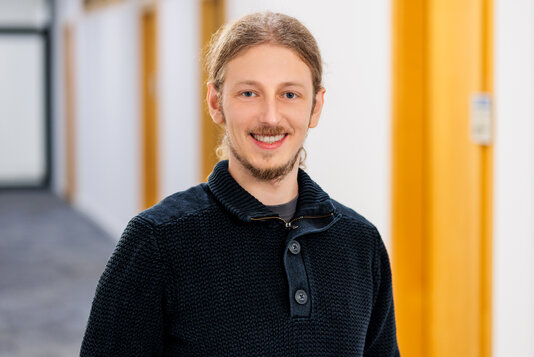
Alexander Irmer is responsible for IT support at the College as of June 2024. He supports College members in IT-related matters and coordinates the initial systems setup and configuration. After acquiring a Bachelor’s degree in photography at Folkwang University of the Arts, Alexander Irmer completed an apprenticeship as an IT specialist for system integration at the University of Duisburg-Essen.
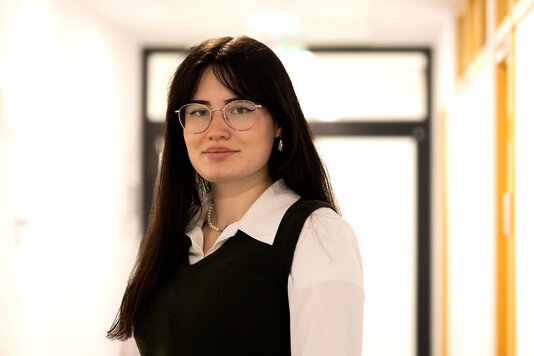
Saskia Hass
Student Assistant
Saskia Hass has been a student assistant at the Managing Office since March 2024. After a study stay abroad at Maynooth University (Ireland) she resumed her position in October 2025. She studies history and economic, political and social sciences at the University of Duisburg-Essen.
The international Advisory Board consists of internationally recognised scholars who are primarily occupied at research institutions abroad. Its function is to advise the Scientific Board in all academic matters.
 ©
© private
©
© private
Prof. Ana Deumert
University of Cape Town, South Africa | Linguistics
Ana Deumert is Professor of Linguistics at the University of Cape Town, South Africa. Her research programme is located within the broad field of sociolinguistics and has a strong transdisciplinary focus. Her current work explores the use of language and art in global political movements as well as the contributions decolonial thought can make to sociolinguistic theory. Recent publications include Colonial and Decolonial Linguistics - Knowledges and Epistemes (2020, with Anne Storch and Nick Shepherd), and From Southern Theory to Decolonizing Sociolinguistics (2023, with Sinfree Makoni). She is co-editor of Edinburgh Sociolinguistics, Cambridge Approaches to Language Contact and Encounters (Multilingual Matters, Bristol).
Ana Deumert is a recipient of the Neville Alexander Award for the Promotion of Multilingualism (2014) and the Humboldt Research Award (2016). She was an Honorary Research Fellow at the University of the West Indies (2022 to 2024) and a Professor II at Inland University of Applied Sciences, Norway (2022 to 2023).
Website
https://humanities.uct.ac.za/department-asl/contacts/ana-deumert
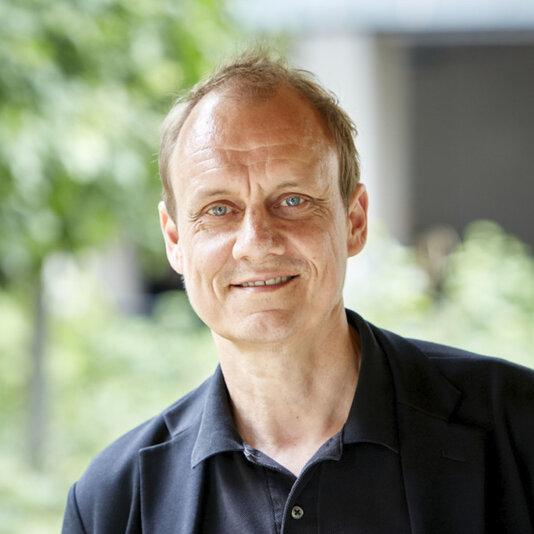 ©
© University of Leeds LSSI
©
© University of Leeds LSSI
Prof. Adrian Favell
University College Cork, Ireland | Social and Political Theory
Adrian Favell is Professor of Social and Political Theory and Director of the Radical Humanities Laboratory, University College Cork (UK), and a Fellow of the British Academy. Previously, he directed the Bauman Institute at the University of Leeds, and was also Professor at Sciences Po, Paris (France), Aarhus University (Denmark) and UCLA (USA). He is the author of various works on migration, multiculturalism, cosmopolitanism and cities, including Philosophies of Integration: Immigration and the Idea of Citizenship in France and Britain (1998), Eurostars and Eurocities: Free Movement and Mobility in an Integrating Europe (2008), a collection of essays, Immigration, Integration and Mobility: New Agendas in Migration Studies (2015), and a work in migration theory, The Integration Nation: Immigration and Colonial Power in Liberal Democracies (2022). He also writes and comments regularly about Japanese contemporary art and architecture. Presently he directs the ERC-funded (Advanced Grant) project ‘MIGMOBS – The Orders and Borders of Global Inequality: Migration and Mobilities in Late Capitalism’ (2024-28).
Website
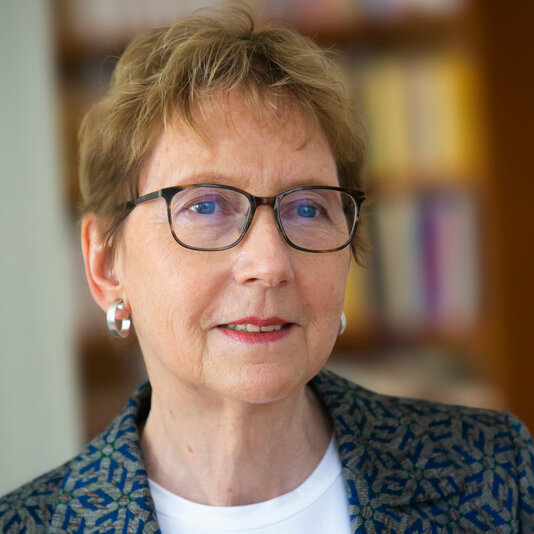 ©
© Hæge Håyveit
©
© Hæge Håyveit
Prof. Christel Fricke
University of Oslo, Norway | Philosophy
Christel Fricke, a German citizen, holds a PhD and a habilitation in philosophy from Heidelberg University. She is a professor emerita of philosophy at the University of Oslo, Norway, and a member of the Norwegian Academy of Science and of the Royal Norwegian Society of Sciences and Letters. She has visited academic institutions in the United Kingdom (Cambridge and Oxford), in the USA (New York, Columbia U.; Atlanta/GA, Emory U.; Chicago/IL, U. of Chicago; Tucson/AZ, U. of Arizona), in Australia (Canberra, Australian National U.), in Chile (Santiago, Pontificia Universidad Católica de Chile), and in Brazil (Porto Alegre, Universidade Federal do Rio Grande do Sul).
Her research interests include normative moral theory and its history (David Hume, Adam Smith, Immanuel Kant), moral psychology, the ethics of vulnerability, and philosophical aesthetics. She has published extensively on these topics, including two monographs on philosophical aesthetics and several co-edited collections of papers. At present, she is finalising a monograph on 'Moral Wounds – For a Turn Towards Victims in Moral Theory and Practice'.
For details see: http://www.christelfricke.no.
Website
https://www.hf.uio.no/ifikk/english/people/aca/philosophy/tenured/chrisfri/index.html
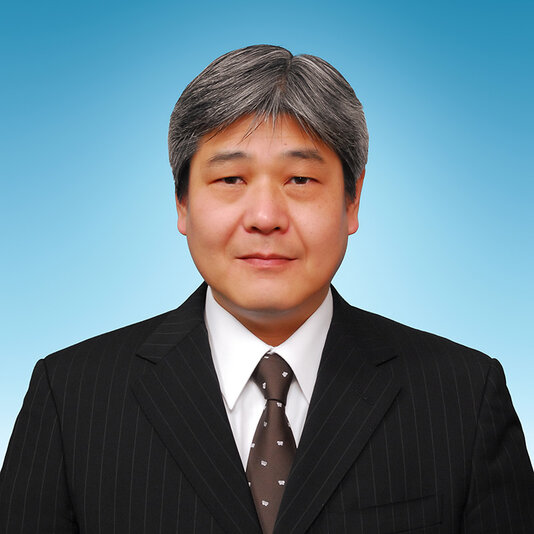 ©
© private
©
© private
Prof. Hiroshi Goto
Hiroshima University, Japan | Philosophy
Hiroshi Goto is Professor of Philosophy at the Department of Applied Philosophy and Classics (Western Philosophy) at the School of Letters, Hiroshima University, Japan. He holds a PhD in Philosophy from Trier University (Germany). His research focusses on Modern and Contemporary German Philosophy, particularly phenomenology. Hiroshi Goto discusses Edmund Husserl’s phenomenology with a particular emphasis on the notion of person. Based on this approach, he is examining the forgotten history of virtue ethics and attempting a re-examination of importing the notion of person into Japan.
Goto‘s publications include Der Begriff der Person in der Phänomenologie Edmund Husserls. Ein Interpretationsversuch der Husserlschen Phänomenologie als Ethik im Hinblick auf den Begriff der Habitualität (Königshausen & Neumann 2004), and “Versöhnung mit der Natur bei E. Husserl - Der Status der Tiere“ (in: Hiroshima Interdisciplinary Studies in the Humanities, 2012).
Website
https://www.hiroshima-u.ac.jp/en/bungaku/research/staff/goto_hiroshi
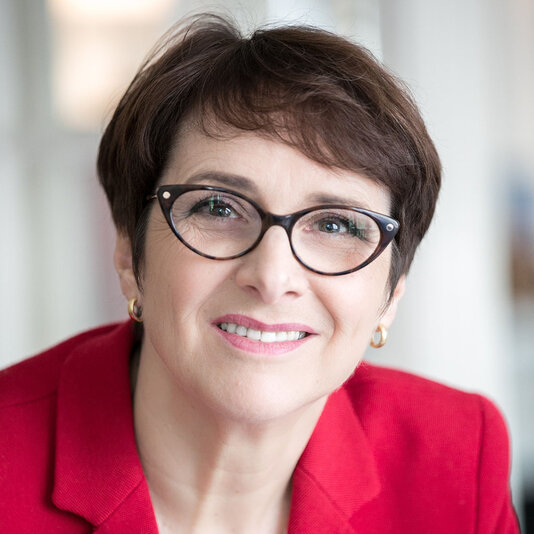 ©
© Alain Mandel
©
© Alain Mandel
Prof. Hélène Miard-Delacroix
Sorbonne University, France | German History
Hélène Miard-Delacroix is Professor of German history at Sorbonne University in Paris (France). She joined the faculty of the Sorbonne in 2008. Previously, she held a professorship at the Ecole Normale Supérieure in Lyon, France. She is a member of the scientific advisory boards of leading German and French research institutions such as the senate of the Leibniz Association. She was president of the scientific advisory council of the Federal Chancellor Willy Brandt Foundation (2008 to 2018), vice-president of the scientific advisory council of the Leibniz Institute for Contemporary History (Institut für Zeitgeschichte – IfZ) Munich-Berlin (2010 to 2020).
For the past nine years, Miard-Delacroix has been co-editor of the foreign policy records of the Federal Republic of Germany (AAPD). Her publications include many books, articles and book chapters on German history, history of German-French relationship and entangled European history. Her most recent research focuses on the role of emotions in international relations with a new book due to be published in French in spring 2025.
Hélène Miard-Delacroix has been awarded prestigious prizes such as the International Prize for Research from the Max Weber Foundation for lifetime scientific achievement in 2017 and the Reimar Lüst Award for leading international scientists from the Humboldt Foundation in 2022.
Website
https://lettres.sorbonne-universite.fr/personnes/helene-miard-delacroix
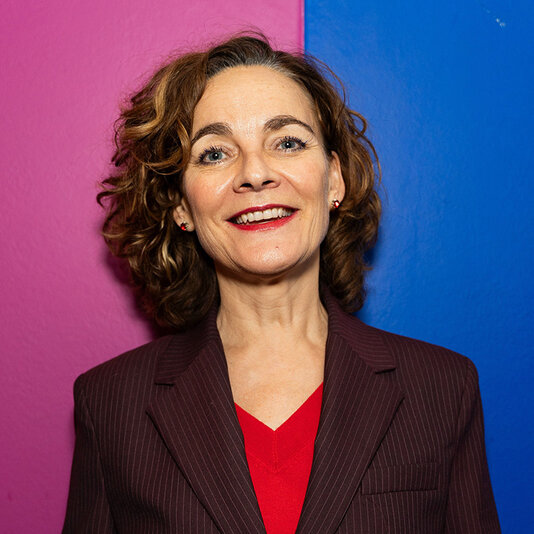 ©
© Jaime Korbee
©
© Jaime Korbee
Prof. Patricia Pisters
University of Amsterdam, the Netherlands | Media Studies
Patricia Pisters is Professor of Film at the Department of Media Studies of the University of Amsterdam. She is affiliated to the Amsterdam School of Cultural Analysis (ASCA) of the Faculty of Humanities and member of the Royal Netherlands Academy of Sciences (KNAW). She is one of the founding editors of the open access journal Necsus: European Journal of Media Studies. Her book New Blood in Contemporary Cinema: Women Directors and the Poetics of Horror appeared with Edinburgh University Press in 2020. Futher publications include The Matrix of Visual Culture: Working with Deleuze in Film Theory (Stanford University Press, 2003) and The Neuro-Image: A Deleuzian Film-Philosophy of Digital Screen Culture (Stanford University Press, 2012). Filming for the Future: The Work of Louis van Gasteren (Amsterdam University Press) won the Louis Hartlooper Prize for best film book of 2016. Patricia Pisters is the editor of the special issue on Deleuze & Guattari and the Psychedelic Revival (2023). She is co-series editor of Film Culture in Transition (Amsterdam University Press) and thinking I media (Bloomsbury). As film philosopher, she writes about the role of film and media in respect to (collective) consciousness and ecological/elemental approaches to media. She is board member of the Open Foundation for Psychedelic Research and of the magazine and platform Extra Extra. For articles, her blog, audio-visual material and other CV information, see also www.patriciapisters.com.
Website
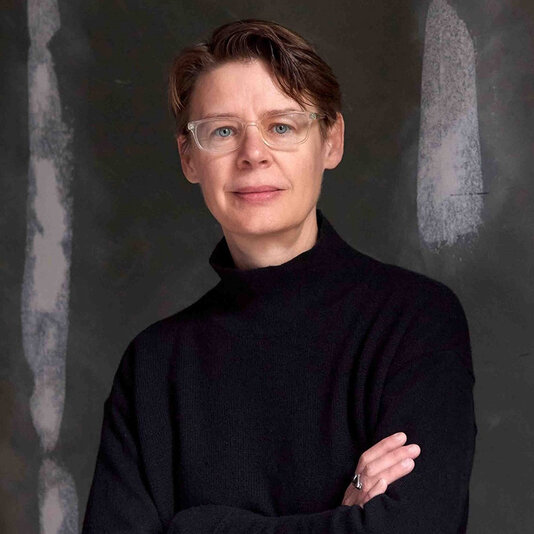 ©
© Sabine Vielmo / The New Institute
©
© Sabine Vielmo / The New Institute
Prof. Elisabeth Strowick
New York University, USA | German Studies
Elisabeth Strowick (Dr phil., University of Hamburg 1998; Habilitation, University of Basel 2005) is Professor of German in the Department of German at New York University, USA. Before joining NYU, she was Professor of German and Humanities, Chair of the Department of German and Romance Languages and Literatures, and Co-Director of the Max Kade Center for Modern German Thought at Johns Hopkins University (2008 to 2016). Elisabeth Strowick has held several academic positions, including visiting professorships, at universities in the United States (Yale, Vanderbilt), Germany (FU Berlin, Zentrum für Literatur- und Kulturforschung Berlin, University of Hamburg), and Switzerland (University of Zurich, University of Basel). She was awarded a Feodor Lynen Fellowship by the Alexander von Humboldt Foundation (Yale, Johns Hopkins, 2004 to 2006).
Her areas of expertise are German literature, culture, and thought from the 19th century to the present, with a special emphasis on literary theory, psychoanalysis, aesthetics, the poetics of knowledge, and ecocriticism. She is the author of Passagen der Wiederholung: Kierkegaard – Lacan – Freud (Metzler 1999), Sprechende Körper – Poetik der Ansteckung (Fink 2009), and Gespenster des Realismus. Zur literarischen Wahrnehmung von Wirklichkeit (Fink 2019) and has (co-)edited numerous volumes and special issues of peer-reviewed journals. Elisabeth Strowick is currently working on a book on ‘Literary Scale Critique: The Anthropocene as Deep War Time’.
Website